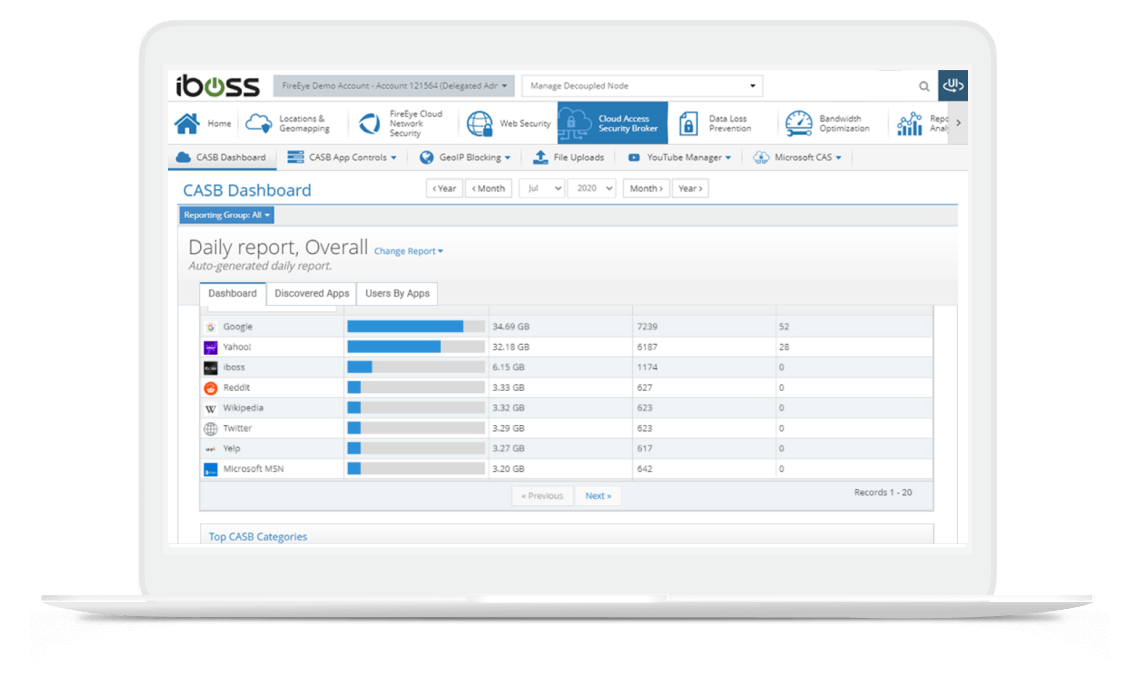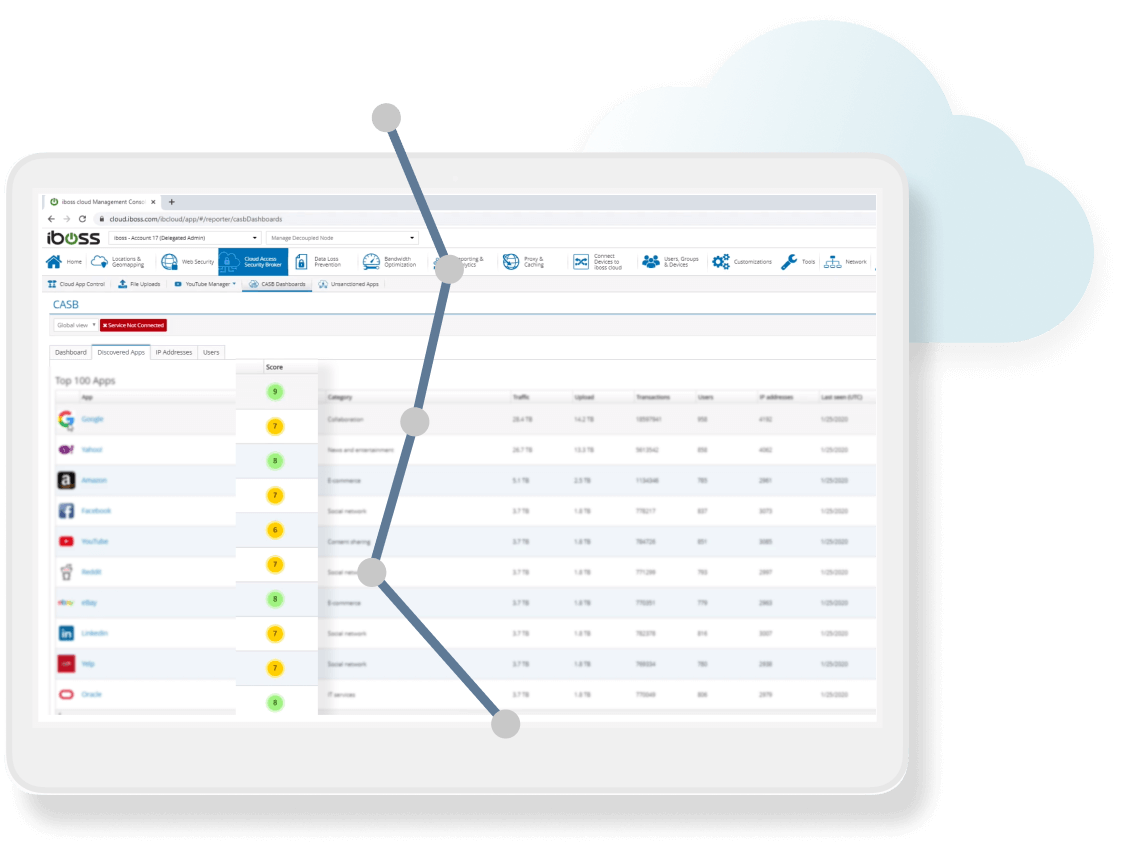Secure Your Cloud Applications with
Comprehensive inline and API-based CASB capabilities integrated into the iboss Zero Trust SASE platform.
Protect your data and cloud applications from breaches and data loss with iboss Cloud Access Security Broker (CASB). Uniquely offering both inline and out-of-band CASB, iboss provides real-time protection, granular in-app controls, and deep visibility into cloud application usage to secure your organization’s SaaS and cloud services.
Unified Inline and API-Based CASB
Experience comprehensive cloud security with iboss’s unique combination of inline and out-of-band CASB capabilities. Protect cloud applications in real-time and secure data at rest within SaaS platforms—all within the unified iboss Zero Trust SASE platform.

Real-Time Inline CASB Protection
Secure cloud applications as users access them with iboss’s inline CASB. Decrypt and inspect HTTPS traffic in real-time, applying granular application controls and enforcing security policies seamlessly.
Granular In-App Controls
Control risky or non-compliant behaviors within applications. Allow access to platforms like LinkedIn and Facebook while preventing file uploads to avoid data loss. Apply detailed policies within thousands of applications cataloged in the iboss application library.
Enforce Microsoft Tenant Restrictions
Ensure users can only log into authorized organizational tenants for applications like Microsoft 365, Slack, Gmail, Google Drive, and Google Docs. Prevent unauthorized access to external tenants and protect sensitive data.
Integrated Security with DLP and Malware Defense
Apply Data Loss Prevention (DLP) and malware defense in real-time as users interact with cloud applications. Inspect document labels from Microsoft, Boldon James, and more to prevent the transfer of sensitive documents to untrusted destinations.
Automatic Synchronization with Microsoft Labels
Sync document labels from Microsoft automatically, enabling centralized management within Microsoft while iboss enforces real-time inline CASB controls to keep data secure within trusted locations.
See Document Label Protection in Action
iboss + Microsoft Purview Data Labels
API-Based Out-of-Band CASB
Extend your security beyond inline, time of access, protection with iboss’s API CASB. Connect directly to SaaS applications to scan for risks, detect publicly shared sensitive documents, and enforce consistent security policies on data at rest.
Comprehensive Scanning of Data at Rest
Scan data within cloud applications using the same DLP and malware policies applied to inline transfers. Detect and remediate sensitive content, malware, and compliance violations within platforms like Box, Dropbox, Google Drive, Microsoft 365, and Salesforce.
Prevent Data Leakage with Immediate Detection
Prevent Data Leakage with Immediate Detection
Protect against inadvertent data leakage by detecting publicly shared sensitive documents immediately. Ensure that unauthorized public file shares are identified and remediated to safeguard your organization’s data.
Integration with Microsoft Defender for Cloud Apps
Leverage seamless integration with Microsoft’s CASB to enhance your security posture. Apply iboss inline CASB controls to data transfers when risks are detected inside Microsoft, providing comprehensive protection across your cloud environment.
Automatic Application Discovery and Shadow IT Detection
Identify all SaaS, cloud infrastructure, and on-premises private applications accessed within your organization. Detect shadow IT automatically to ensure all applications meet your security and compliance standards.
Ready to Secure Your Cloud Applications with Comprehensive CASB?
Discover how iboss’s integrated inline and API-based CASB capabilities can protect your data, enforce granular controls, and provide deep visibility into cloud application usage.

